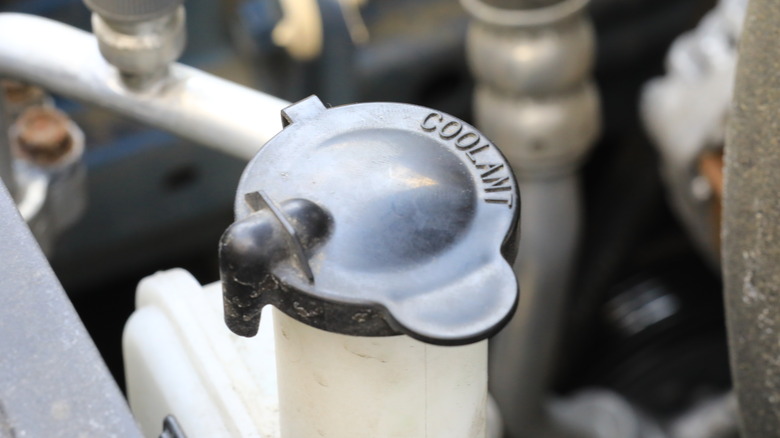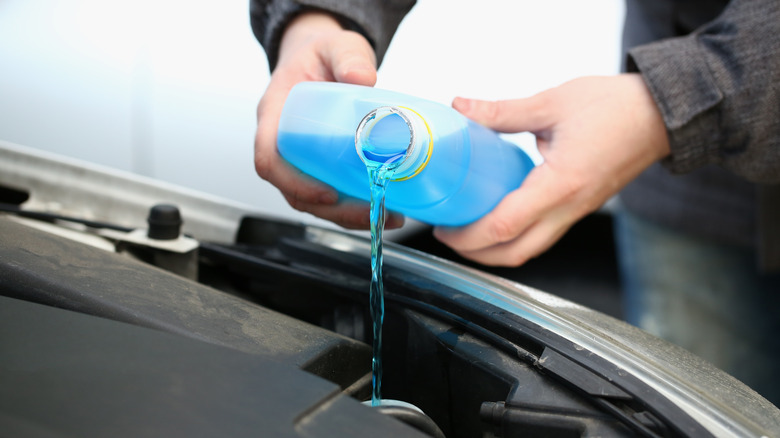Is Engine Coolant The Same As Antifreeze? Here's Which One To Use
To put it lightly, being a car owner can be quite a time-consuming effort. Not only do you have to stick with routine upkeep efforts — and avoid the common maintenance mistakes that will make your car less reliable — but there are also a great many different fluids you have to keep tabs on. First and foremost is gas, as without it, cars that require it won't run. Oil is essential as well if you want to keep your car operating smoothly and prolong the life of key components within it. These two are only the tip of the vital vehicle liquid iceberg.
One of the most important things to know about your car is the internal temperature. There are a multitude of reasons why your car's engine can overheat, with low amounts of or absolutely no cooling liquid present to keep it from doing so. You should think twice before pouring water into your radiator to fix this and instead go with one of the two superior remedy options out there: antifreeze and engine coolant.
Both are specifically designed to prevent a car's engine temperature from spiraling out of control. However, it should be noted that these two products aren't quite the same. There are some key things about both antifreeze and engine coolant that you should be aware of before putting one or the other into your vehicle.
What is the difference between antifreeze and coolant?
Antifreeze is comprised of either ethylene glycol or propylene glycol plus distilled water and can come in a variety of colors based on chemical composition. These specific colors and chemical makeups correlate with vehicle brands, so knowing which one your vehicle takes will come in handy when it comes time to replace it. As its name suggests, antifreeze is designed to protect your car from freezing up in cold climates, and it also comes with additives to combat engine corrosion.
Meanwhile, coolant is a mixture of glycols and water. Thus, antifreeze is an element of coolant, with it typically comprising around 50% of the mixture . Coolant meant for lower-temperature climates tends to include higher percentages of antifreeze. It too comes in several different colors and works to prevent corrosion over time. Note that some older vehicles require inorganic coolant with silicates or phosphates.
Though many tend to use antifreeze and coolant as synonyms, in reality, these two important temperature-maintaining fluids stand on their own as individual products. When it comes to which engine cooler type is best for you, it will depend on your vehicle, its age, and your local climate. It's important to consult your car or truck's manual or speak with a mechanic about the matter before getting out the funnel and opening up the radiator.

